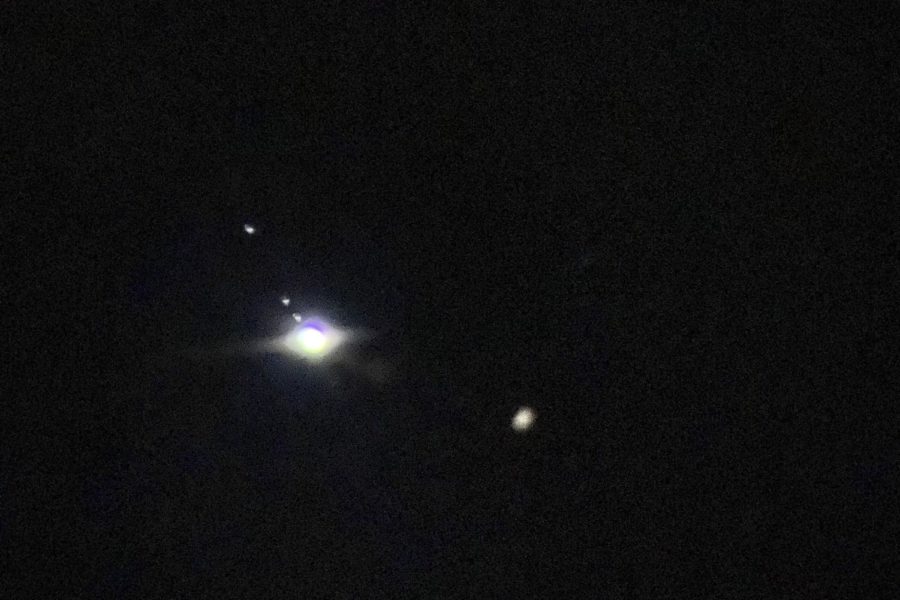Jupiter returns as ‘king’ of moons
Jupiter and four of his moons shine through a telescope on Dec. 16, 2022.
March 20, 2023
With the recent discovery of more moons orbiting Jupiter, the king of the planets reclaims its position as king of the moons.
Back in 2019, scientists discovered 20 new moons that orbit around Saturn, which put the confirmed number of moons orbiting the ringed-giant at 82, just more than Jupiter’s 79 moons, according to National Geographic.
Now, Saturn sits at 83 confirmed moons as Jupiter sets the record to 92 confirmed moons.
“As it is, there is so much that could come from this,” said junior Ian Buhner. “There’s already so much sci-fi based on Jupiter and Europa.”
Scientists believe Jupiter and Saturn attract smaller moons created from fragments of bigger moons that collided with comets or asteroids, according to pbs.org.
They believe the same applies for Uranus and Neptune, but the distance of those planets make it hard for scientists to see moons. As it stands, the news moons appear too small to receive names.
“Jupiter is named after the Roman myth version of Zeus and Jupiter’s four main moons have their names derived from Zeus’ lovers in Greek mythology,” said sophomore David Bruhjell. “It’s funky since he’s Roman, but his lovers are Greek. They follow mythology, so it’s a shame they won’t name the new moons.”
In April, a mission called ‘Juice’ will launch to study Jupiter and three moons that contain oceans– Ganymede, Callisto and Europa, according to the European Space Agency.
In Oct. 2024, NASA plans to launch its ‘Europa Clipper’ mission. The mission hopes to find life on the Galilean moon, according to nasa.gov.
Ganymede, Callisto and Europa make up three of the four Galilean moons, the first moons of Jupiter discovred in 1610 by Galileo Galilei. Europa shows the most promise to host life, while Ganymede and Callisto show potential as well. Scientists do not consider Io, the fourth Galilean moon, in consideration for holding life as the moon stands as the most volcanically active body in the solar system, according to nasa.gov.
“This new discovery and upcoming mission could really mean something,” said junior Britney Gallahue, “This could just be the start.”


